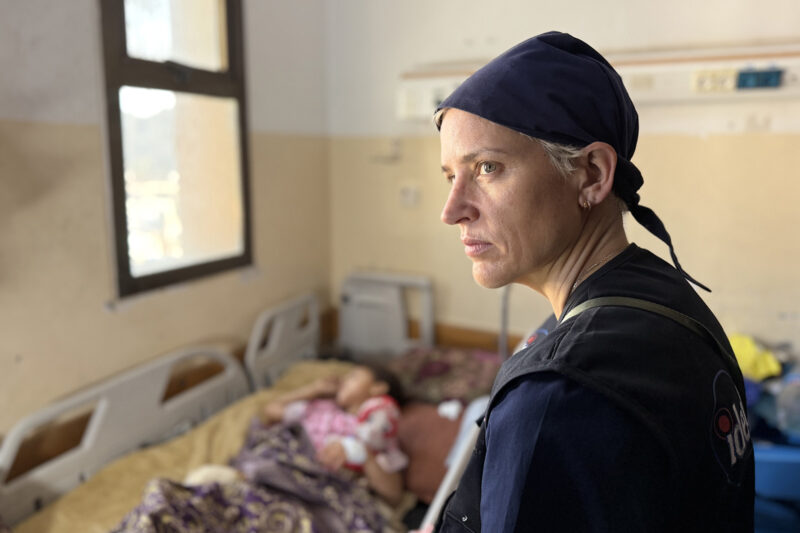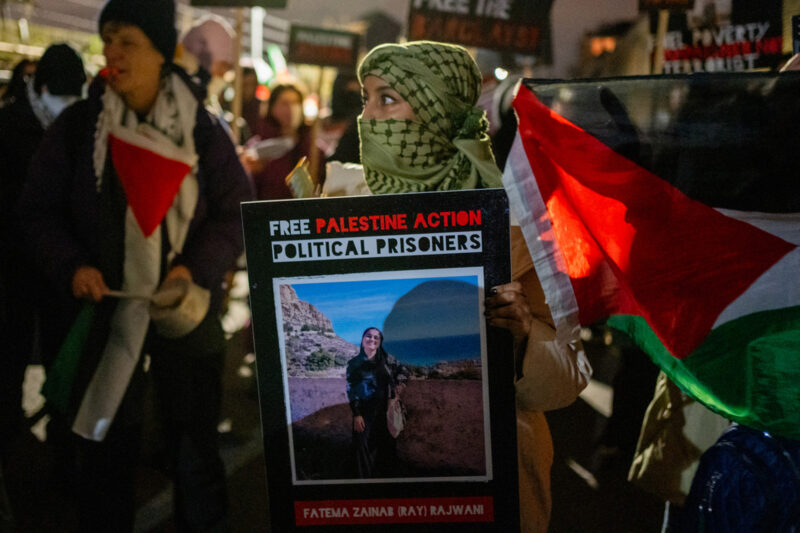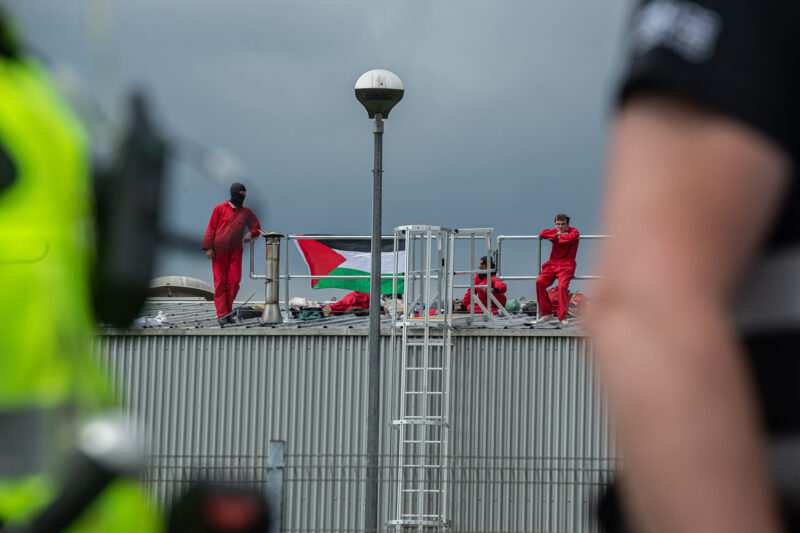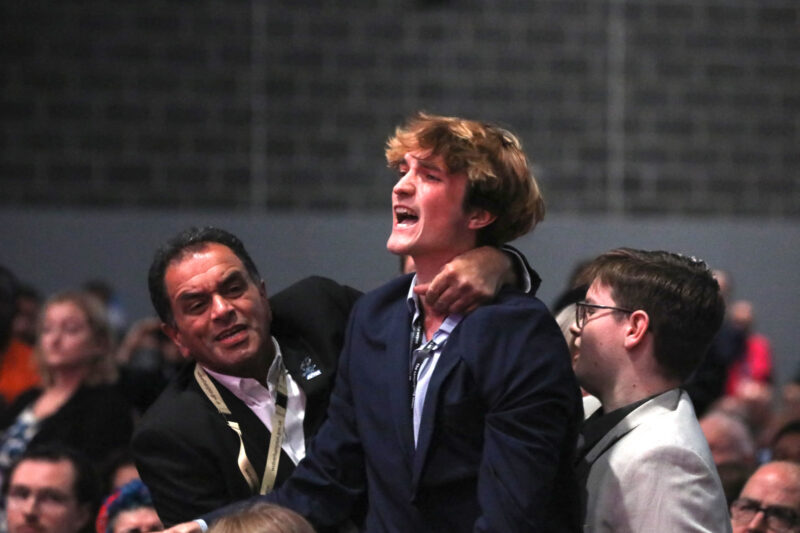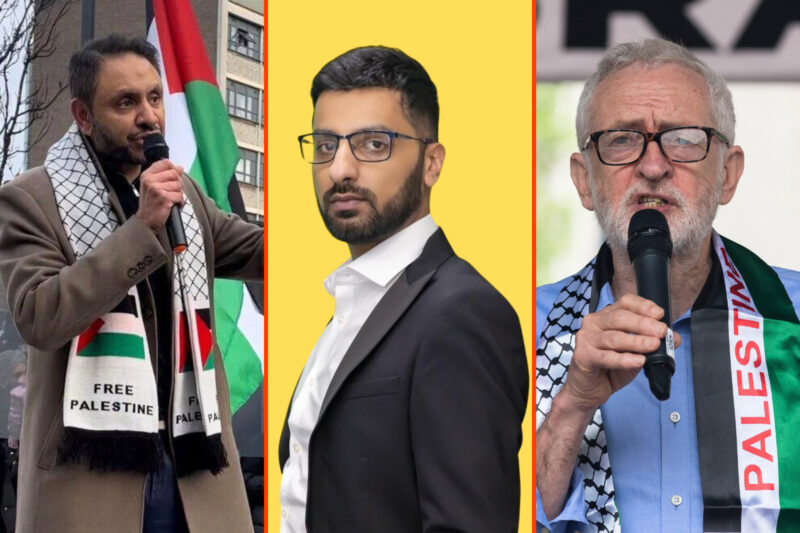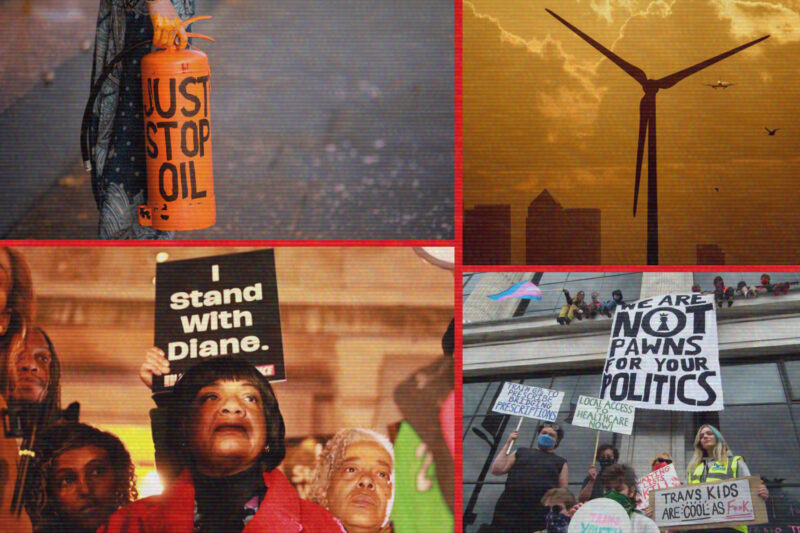How university surveillance is affecting Palestinian students in the UK
Higher education institutions have worked with police to counter student protests against Israel’s actions in Palestine
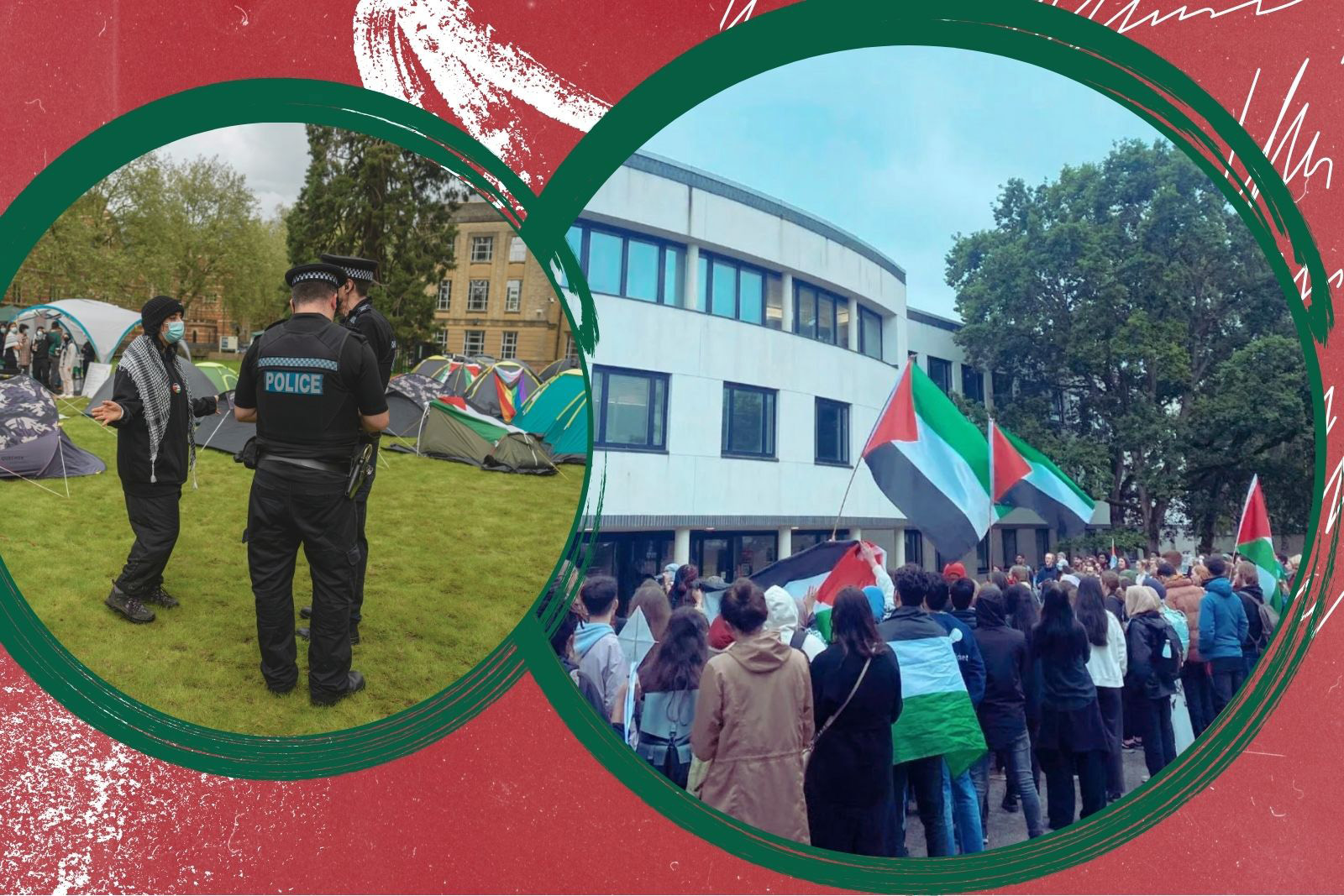
When students at the University of East Anglia (UEA) in Norwich learned that their university had been accused of working with police to spy on pro-Palestine protesters, the news rippled through campus. Many were left feeling worried about being watched.
For some of the university’s Palestinian students, surveillance is nothing new.
“I’m always careful because this is how I learned to survive in Palestine,” one student told Hyphen. “I’m aware of what words I say and how I say them. It reminds me of living under occupation. I feel like I’m living the same situation here.”
The student’s fears of surveillance follow a recent investigation by human rights journalism unit Liberty Investigates and Metro which revealed that a number of UK universities have been working with police to target and surveil their own students.
The student — who does not want to be identified because she fears losing her student visa — told Hyphen that taking part in pro-Palestine activism on campus has held a special significance.
“I’m struggling to cope with the guilty feeling of being abroad while my family and friends are being attacked. It’s my first time being outside of Palestine when there’s been a war, especially of this intensity,” she said.
The arrests of student protesters have intensified since student camps began to pop up at universities around the UK in protest against Israel’s actions in Palestine. Earlier in July, seven people were arrested at an encampment at the School of Oriental and African Studies. Other arrests have been recorded in May in Oxford and at University College London.
At the height of the wave there were 36 active camps. While a number have started winding down for the summer, others have been forced to close after universities around the UK sought possession orders from the High Court to evict students.
According to Liberty Investigates, UEA admitted to sharing protesters’ personal data with police. The student told Hyphen that this has made her feel “unsafe” and “exposed”.
Pro-Palestine movements at UEA have been active for several years but after intensifying their campaign since October, student protesters have caught the attention of university staff and police. According to UEA’s Palestine Solidarity Society, as recently as May more than 400 people marched on campus calling for the university to divest from companies accused of being complicit in Israel’s attacks on Palestinians.
Emails obtained by Liberty Investigates showed that between October 2023 and March 2024, UEA shared information with the police about pro-Palestine events that had been taking place on campus amid Israel’s bombardment of Gaza.
On 12 October, police emailed university staff a screenshot of a Palestinian flag that had been raised in the students’ union on campus and warned that while flying the flag isn’t an offence, it might not “look well” for the establishment.
The same police email also warned the university about the possibility of an “extreme pro-Palestine support group” on campus and advised university staff that an event being held that week would be “one to monitor”.
Events on campus have been part of a wider crackdown on peaceful protest. A report released earlier this year by John Woodcock — a crossbench peer and independent adviser on political violence and disruption — urged the government to take a “zero-tolerance approach” to pro-Palestine and climate protesters.
The report labelled groups such as Palestine Action, the Palestine Solidarity Campaign and Just Stop Oil as “extremist” and laid out more than 40 recommendations ranging from charging protesters for the cost of policing to urging politicians not to engage with activist groups.
In his report Woodcock accused these groups of seeking “to undermine faith in our parliamentary democracy”, and warned of a need to understand “the damage that can be done to society by the extreme far left”.
Chris Kershaw, a PhD student and president of UEA Palestine Solidarity Society, said: “It is a legalistic form of curtailing people’s rights and making it so that only those who are supported by the state or have large financial backers are actually able to engage in these things.”
He continued: “Knowing that you are being watched is worrying.”
Emails obtained by Liberty Investigates also revealed that UEA had requested that a police officer join the university’s control room monitoring CCTV during a protest held by students on an open day on 21 October last year.
A UEA spokesperson said: “University is a time to explore ideas and express opinions, and we encourage and allow free speech within the law on our campus. As a university we have a responsibility to create an environment where staff and students can feel comfortable to express lawful opinions and challenge established ideas in appropriate ways.”
The spokesperson added that any data shared with police relates to one allegation of criminal damage committed by a student, which the university reported to the police. According to Norfolk police, “all lines of inquiry have been exhausted and the case has been closed”.
Kershaw told Hyphen that some UEA students organising for Palestine have been taking extra measures to protect themselves, including meeting off campus, covering their faces and turning off locations on their phones.
A spokesperson for Norfolk police said: “We recognise that everyone has the right to free speech and expression. However, officers will take the appropriate action against those who choose to act outside the law.”
Another Palestinian student at the university — who also declined to be identified for fears of losing his student visa — said: “It was more of a shock to me because I thought this was supposed to be a democratic country where everyone has freedom of speech.
“It’s like they’re preventing me from representing myself and Palestinian students.”
 Newsletter
Newsletter


